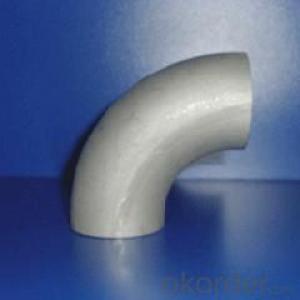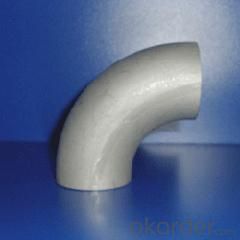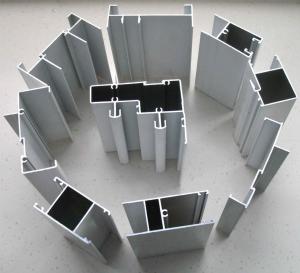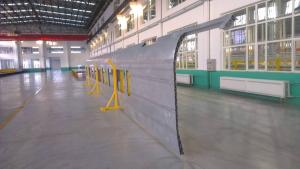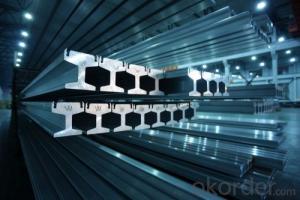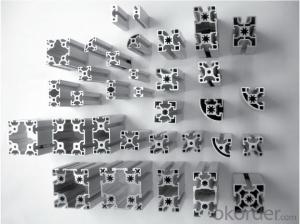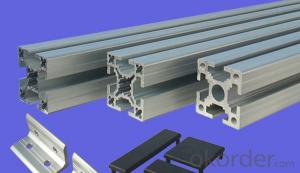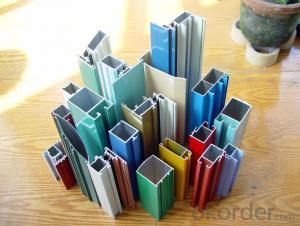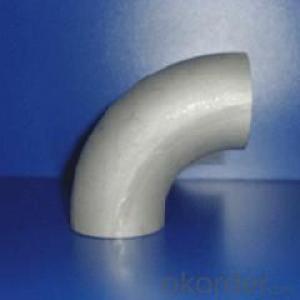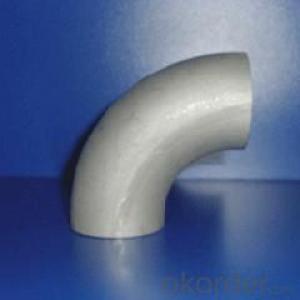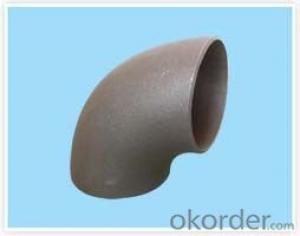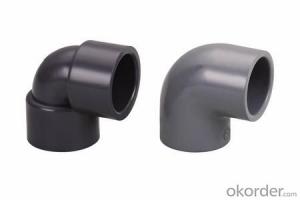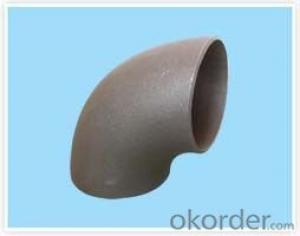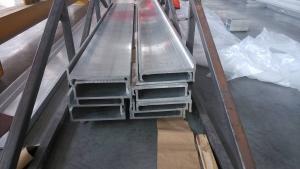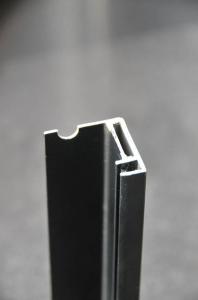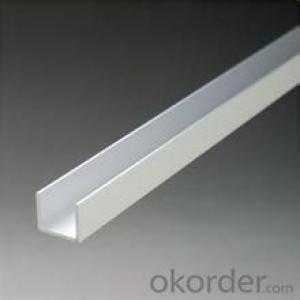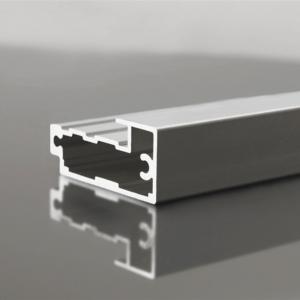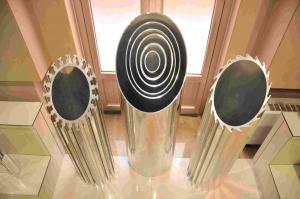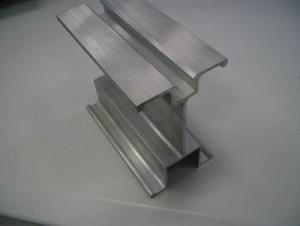Half Round Aluminum Extrusion Profiles - Aluminum Elbow 45 Degree Profile
- Loading Port:
- China Main Port
- Payment Terms:
- TT OR LC
- Min Order Qty:
- -
- Supply Capability:
- -
OKorder Service Pledge
OKorder Financial Service
You Might Also Like
Specifications
45 degree aluminum elbow
1.size:1/2"-48"
2.standard:ASTM B16.9
3.Certification: ISO
Type | 45 degree elbow |
Size | 1/2"-48"DN15--DN1200 |
Wall Thickness | Sch5--Sch160XXS |
Standard | ISO, SNSI, JIS, DIN, GB/T12459GB/T13401ASME B16.9SH3408 SH3409HG/T21635HG/T21631SY/T05010 |
Material | 20#/Q235 |
Packaging | wooden cases or wooden pallet or as per customers requirement |
Applications Range | petroleum, chemical, power, gas, metallurgy, shipbuilding, construction, etc |
Min Order Quantity | According to customer's requirement |
Delivery Time | According to customer's requirement |
Quality | First grade |
Productivity | 8000000T/Y |
Others | 1.Special design available according to requirement 2.Anti-corrosion and high-temperature resistant with black painting 3. All the production process are made under the ISO9001:2008 strictly. |
- Q: What are the durability characteristics of aluminum profiles?
- Aluminum profiles are known for their excellent durability characteristics. They have a high strength-to-weight ratio, allowing them to withstand heavy loads without deforming or breaking. Additionally, aluminum is highly resistant to corrosion, making it suitable for both indoor and outdoor applications. The material is also non-combustible, providing added safety in case of fire. Overall, aluminum profiles offer long-lasting performance and are an ideal choice for various structural and architectural purposes.
- Q: This question asks about the various types of aluminum profiles that are utilized in the construction of insulation systems.
- <p>Aluminum profiles used for building insulation come in various types, each serving specific functions. These include: 1. Insulation profiles, which provide a thermal barrier; 2. Structural profiles, used for structural support; 3. Cover profiles, which protect the insulation material; 4. Joint profiles, used for sealing joints; 5. Corner profiles, for reinforcing corners; 6. Edge profiles, for finishing edges; and 7. Special profiles, designed for specific applications. Each type is engineered to enhance thermal efficiency and structural integrity in building insulation systems.</p>
- Q: How do aluminum profiles perform in seismic or earthquake-prone areas?
- Aluminum profiles have shown to perform well in seismic or earthquake-prone areas due to their inherent properties. Aluminum is a lightweight and flexible material, which allows it to absorb and dissipate seismic energy effectively. This helps in reducing the impact of earthquakes on structures and minimizing damage. Additionally, aluminum profiles are highly resistant to corrosion, which is beneficial in areas with high seismic activity as it ensures the longevity and structural integrity of buildings.
- Q: Are aluminum profiles suitable for electrical applications?
- Yes, aluminum profiles are suitable for electrical applications. Aluminum is a versatile and lightweight metal that offers excellent electrical conductivity, making it a popular choice for various electrical components and systems. Aluminum profiles can be used for electrical enclosures, heat sinks, bus bars, and other electrical connectors. One of the key advantages of aluminum profiles in electrical applications is their high thermal conductivity. Aluminum efficiently dissipates heat, thereby helping to keep electrical components cool and preventing overheating. This is especially important in applications where heat generation is a concern, such as in power electronics or LED lighting. Moreover, aluminum profiles offer good corrosion resistance, which is crucial in electrical applications where exposure to moisture or harsh environments is common. Aluminum naturally forms a protective oxide layer on its surface, which acts as a barrier against corrosion, ensuring the longevity and reliability of electrical systems. Another benefit of aluminum profiles is their ease of fabrication. Aluminum can be easily machined, welded, and extruded into various shapes and sizes, allowing for customized designs and easy installation. This flexibility makes aluminum profiles suitable for a wide range of electrical applications, from small consumer electronics to large-scale industrial systems. Additionally, aluminum is a cost-effective material compared to other metals like copper or steel, offering significant savings in manufacturing and maintenance costs. It is also a highly recyclable material, making it an environmentally friendly choice for electrical applications. In conclusion, aluminum profiles are indeed suitable for electrical applications due to their excellent electrical conductivity, thermal efficiency, corrosion resistance, ease of fabrication, cost-effectiveness, and sustainability.
- Q: Hangzhou aluminum how much money one meter, where can wholesale?
- Decoration materials market, your question is too general profile a variety of non-standard standard and non-standard decoration for many non-standard to open mold and MOQ is non-standard aluminum ingot processing fee plus 5000 yuan I hope to help you. Thank you!
- Q: What are the advantages of utilizing recycled aluminum in construction projects in terms of environmental impact?
- <p>Using recycled aluminum profiles in construction offers significant environmental benefits. It conserves natural resources by reducing the need for mining bauxite, which is the primary source of aluminum. This reduction in mining decreases habitat destruction and soil erosion. Additionally, recycling aluminum requires significantly less energy compared to producing it from raw materials, which cuts down on greenhouse gas emissions and reduces the overall carbon footprint. Furthermore, the use of recycled aluminum helps in waste management by diverting materials from landfills, thereby reducing pollution and the environmental burden of waste disposal.</p>
- Q: Can aluminum profiles be used for security doors and windows?
- Yes, aluminum profiles can be used for security doors and windows. Aluminum is a strong and durable material that is resistant to corrosion, making it an ideal choice for security applications. Aluminum profiles can be designed and manufactured to meet specific security requirements, such as reinforced frames, multi-point locking systems, and impact-resistant glass. Additionally, aluminum profiles offer a sleek and modern aesthetic, allowing for the creation of stylish security doors and windows. Overall, aluminum profiles provide a reliable and secure solution for enhancing the safety and protection of both residential and commercial properties.
- Q: Can aluminum profiles be used in exhibition booth and stand manufacturing?
- Yes, aluminum profiles can be commonly used in exhibition booth and stand manufacturing. Aluminum profiles are lightweight, durable, and versatile, making them an ideal choice for constructing modular structures for exhibition booths and stands. It allows for easy assembly, disassembly, and customization, offering flexibility to accommodate different booth designs and layouts. Additionally, aluminum profiles provide a sleek and professional appearance, making them a popular choice in the exhibition industry.
- Q: How are aluminum shapes made?
- 2, extrusion: extrusion is the method of forming profiles. Firstly, the die is designed and manufactured according to the section of the profile, and the heated round casting bar is extruded out of the die by using an extruder. Commonly used grade 6063 alloy, in the extrusion, also use an air-cooled quenching process and the artificial aging process, to complete the heat treatment strengthening. Different grades of alloy can be treated by heat treatment, and their heat treatment system is different.
- Q: What are the noise insulation properties of aluminum profiles?
- Compared to other commonly used soundproofing materials like wood or PVC, aluminum profiles demonstrate relatively poor noise insulation properties. Due to its lightweight and thin nature, aluminum allows sound waves to effortlessly penetrate it. Consequently, it fails to offer a substantial obstacle for sound blocking or absorption, resulting in minimal noise reduction. Nevertheless, the noise insulation capabilities of certain aluminum profiles can be enhanced through the inclusion of insulating materials or the utilization of thicker profiles. While these adjustments can somewhat improve the soundproofing performance, they may still not match the effectiveness of materials specifically designed for noise insulation.
Send your message to us
Half Round Aluminum Extrusion Profiles - Aluminum Elbow 45 Degree Profile
- Loading Port:
- China Main Port
- Payment Terms:
- TT OR LC
- Min Order Qty:
- -
- Supply Capability:
- -
OKorder Service Pledge
OKorder Financial Service
Similar products
Hot products
Hot Searches
Related keywords
